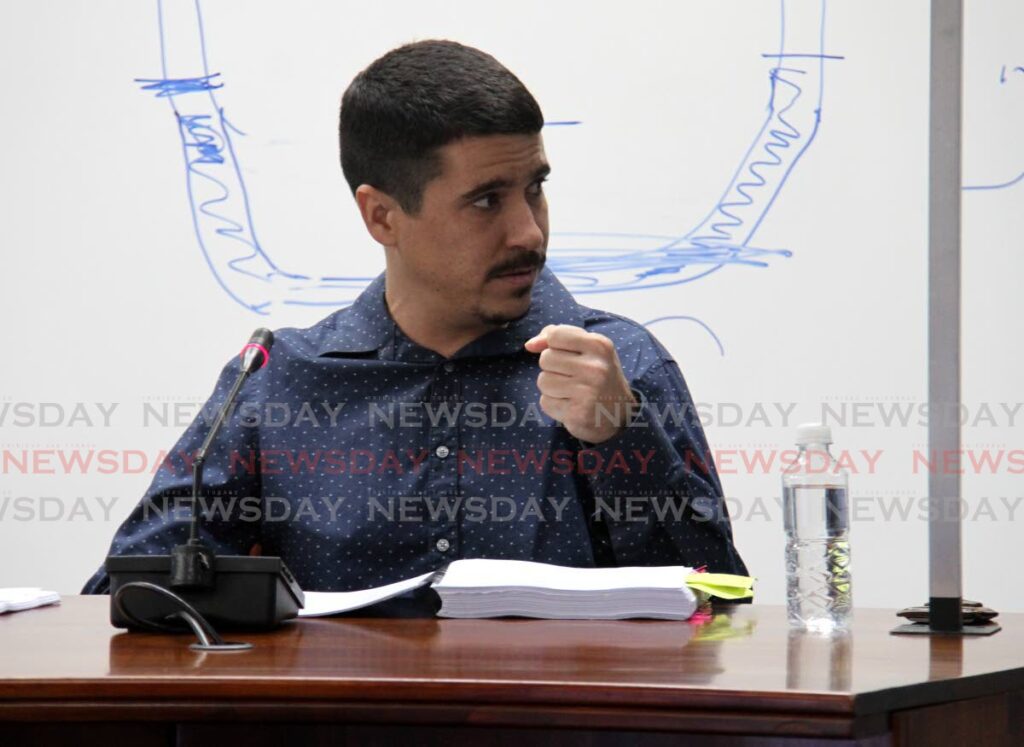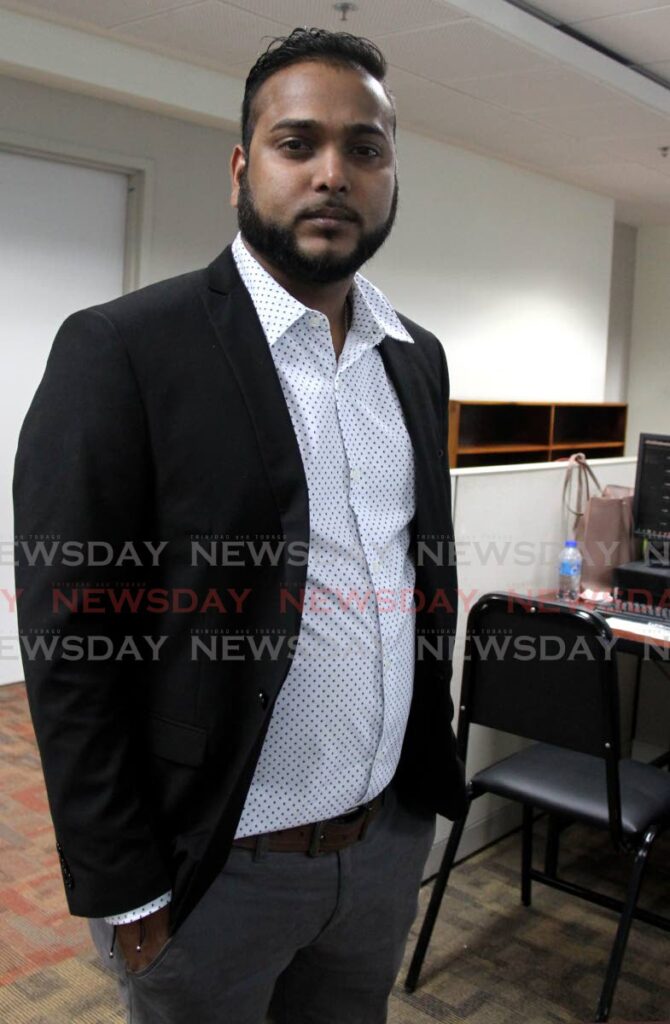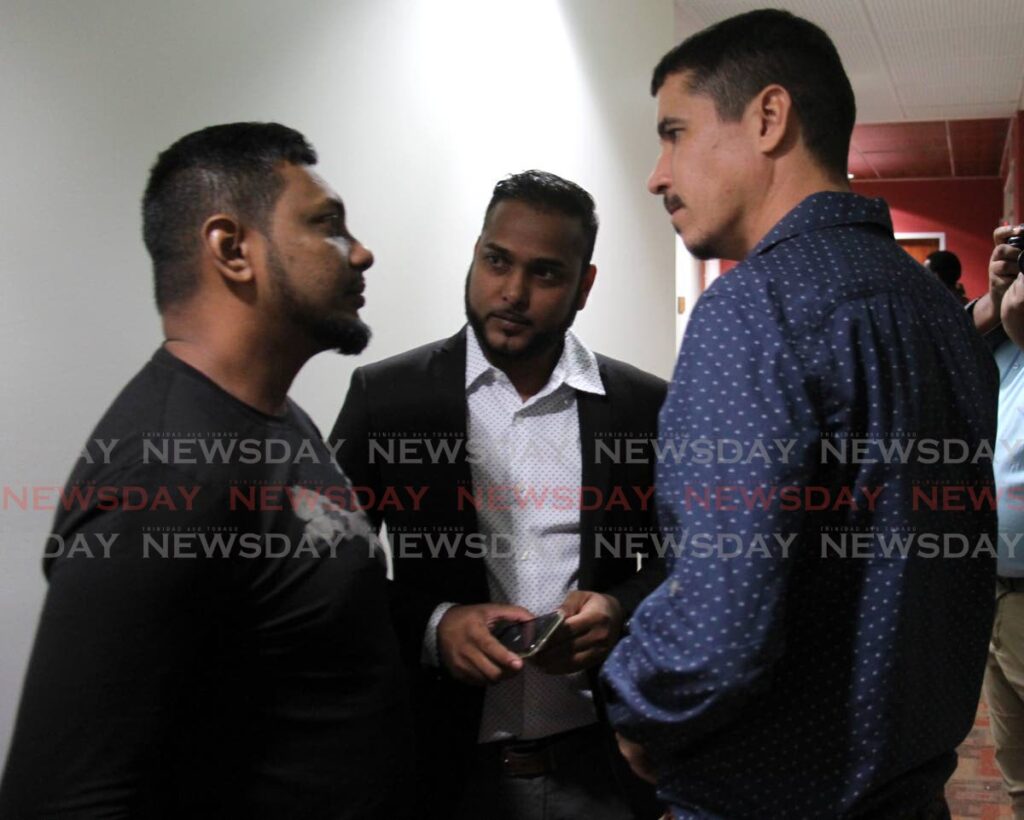Rescue-attempt divers in Paria tragedy: We were prepared to die

LMCS dive operator Andrew Farah testified at the Paria Commission of Enquiry (CoE) on Thursday that he and his team were willing to die to rescue their colleagues who were sucked into a 30-inch undersea pipeline at Pointe-a-Pierre on February 27.
But he expressed frustration about continually being told he had to await approval from Paria officials to carry out rescue efforts, and being asked to get out of the water when he tried to carry out his plans despite being aware of the risks.
The CoE continued at Tower D of the Port of Spain International Waterfront Centre.
On February 25, Kazim Ali Jr, Fyzal Kurban, Yusuf Henry, Rishi Nagassar and Christopher Boodram – all LMCS employees – were doing maintenance at Berth 6, belonging to Paria Fuel Trading Co Ltd, Pointe-a-Pierre, when the incident occurred. Boodram was the only survivor.
Farah said LMCS drafted a method statement and a risk assessment for the retrieval from the pipeline of three scuba tanks which were causing obstructions. He said after this a camera would have been able to go further down the pipeline to assist with rescue efforts.
Pressed by Paria attorney Jason Mootoo, who suggested the only reason LMCS wanted to remove the tanks was to then remove the bodies of the men, as they did not think they were alive, Farah disagreed.
In his witness statement, Farah said he pleaded with Paria officials to give him and four other experienced divers at least one chance to attempt a rescue, as they believed the men were still alive.

Initially, his plan was to enter the riser pipeline with extra diving gear so he could try helping another diver back out. He said he would have used a tagline to communicate with those who remained at the habitat, and he planned to enter feet first.
Asked by CoE chairman Jerome Lynch if he was willing to risk his own life, he said, "I was."
Asked if he knew the "significant risks" that come with entering a pipeline under those conditions, he said he did.
He also said he could understand why Paria officials would be apprehensive about sending more people into the pipeline at the time.
Farah was said to be distraught, with his hands on his head, at the barge, worrying if the men were alive.
But with Boodram eventually being rescued, he said "new hope" was born.
However, he said members of the Coast Guard told them not to enter the pipeline when they were about to try their plan, on which he admitted he disobeyed Paria's instructions.
Some divers were already underwater and had to be called back up to the surface and the plan aborted.
But even as they called off this rescue, the Coast Guard members also said they themselves could not take over because they were not trained to enter pipelines.
Even when the divers secured verbal communication equipment, which included a 300-foot hose which would get its air supply from the surface, and tried to convince Paria and the Coast Guard that they were then better prepared for the attempt, they were told no.

He was made aware about the Delta P – a phenomenon caused by a differential pressure – which led to the men being stuck, but thought that by then, it had been settled and did not factor-in the possibility of its happening again.
Michael Kurban, fellow diver and son of Fyzal Kurban, also testified.
He said when he first arrived, he was not told he could not enter the pipeline.
But he said he too was willing to do so and tried but: "I reached a limit of the air line."
He said he was able to swim past two tanks in the pipeline. After coming back up, he said they tried to create a new plan. He said another diver, Conan Beddoe, was also willing to enter the pipeline, but the new plan was aborted.
Kurban said he made the call because, "When we checked the PSI (pressure per square inch) on the (scuba) tank that we had and we estimated the depth and the time to take inside a pipeline, there wasn't enough air."
It was then they decided to try to get commercial equipment.
Gilbert Peterson, SC, lead counsel for Paria, told Kurban that Beddoe had a different recollection of events.
Beddoe said he was the one who called off the plan because Kurban did not appear to be "in a sound mind to properly tend him."
Commission chairman Jerome Lynch, KC, stopped the line of questioning, saying he did not think it was necessary.
Beddoe said the commercial diving equipment was sufficient to do the rescue properly.
He said he only knows a few other saturation divers who can dive into pipelines with confined space, agreeing it is a "rare skill."
Beddoe said Boodram seemed to be covered in thick black oil, and told him (Beddoe) to go rescue the others. He said although the men trapped in the pipeline were not his family, he still "had the drive to go for them regardless."
But he said he was not aware at the time the trapped divers were in air pockets.
He said, "Looking back at it now, I still would have gone."
Roland Ramoutar, brother-in-law of Fyzal Kurban, was the last to testify.
He said when Boodram came out, he knew other divers were still alive.
Ramoutar said he was tapping on the pipeline and could hear someone tapping back.
While he's been trained to dive into confined spaces, this was his first rescue mission involving a pipeline.
He said he thought about the possibility of another Delta P occurring, but "at that time, saving lives was more important.”
The hearing continues on Monday.

Comments
"Rescue-attempt divers in Paria tragedy: We were prepared to die"